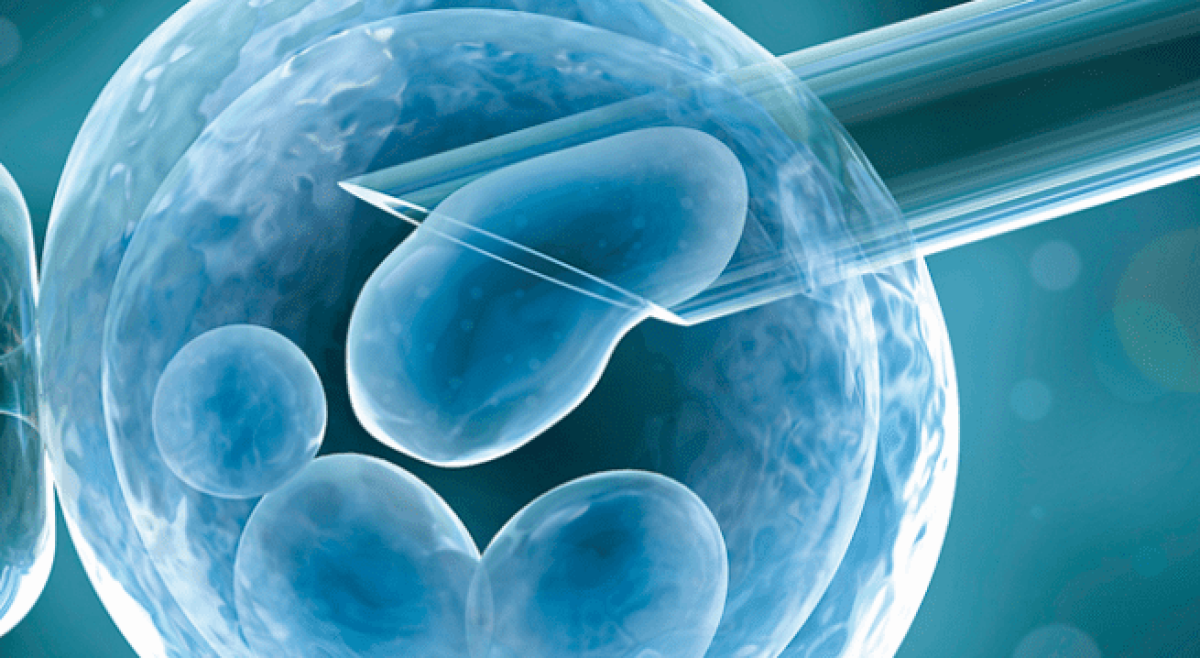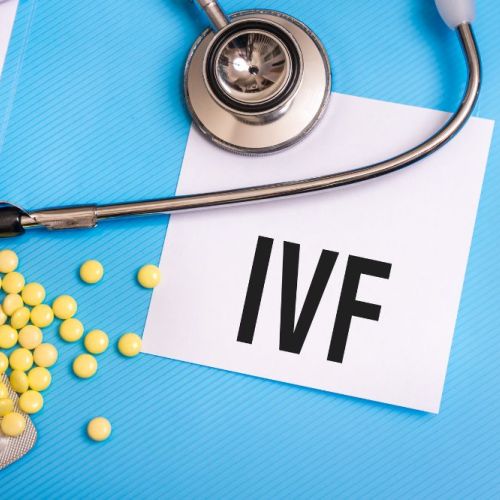4 Tips to Choose Your Egg Donation Specialist

The new mother noted that there is social stigma attached to making this decision, that “few women admit to going this route.” Getting eggs from a donor may not be as out in the open as some other fertility methods, but it is being widely used. The mother mentions healthy births among celebrities in their mid- to late-forties, including Geena Davis (actress), Nancy Grace (TV host), and Elizabeth Edwards (late wife of politician John Edwards). The mother said that one can reasonably assume those births all involved donor eggs since the chance of pregnancy for a woman who is 44 or above is a very low 0.8 percent.
Although celebrities may not talk enough about their experiences with egg donation, one celebrity did give a big hint that she had used this option. “When a woman gets older, they get donor eggs,” said Marcia Cross of Desperate Housewives after giving birth to twin girls at 44 years old.
Why choose donor-egg IVF?
If you are considering donor-egg IVF, the statistics are certainly compelling. Again, it is a very common choice. 1 in 8 in vitro fertilization (IVF) cycles, approximately 16,000, that occur in the United States each year are donor-egg IVF, according to figures from the US Centers for Disease Control and Prevention (CDC). More convincingly, the same federal agency found that this form of fertility treatment is more effective than any other, with a 52% overall success rate across the country – and with many clinics offering substantially higher success rates than that.
How do you choose a strong fertility clinic though, so that you know your egg donation specialist really has expertise, as well as your best interests at heart?
Tip #1 – Check the background.
Women’s health nonprofit HealthyWomen recommends that you want to know that the clinic has been in business for years, and that it treats a sizable number of patients via donor-egg IVF annually. You may want to know about restrictions related to weight (e.g., BMI must be under a certain number), age, or negative screening for hepatitis B and C or AIDS. Finally, the nonprofit suggests checking if you can get screening for congenital disorders such as cystic fibrosis or Down syndrome.
Tip #2 – Review success rates.
It is impossible for a fertility clinic to have a 100% success rate – simply because the practice can’t control everything that goes on within the bodies of patients. That said, you really want to know that your fertility clinic has a success rate that is as high as possible, as suggested by infertility resource IHR.com. The good news is that this information is transparent: the CDC requires in vitro fertilization clinics to provide it with their success rates each year. Be aware that the CDC rates are typically delayed in processing (with three-year-old data at “press time”).
IHR recommends looking at the Annual ART Success Rate Reports produced through the CDC’s ART Clinic Data – the government’s way of logging and monitoring the effectiveness of assistive reproductive technology. (If you want to see sample reports, here are ours: 2009 ART Outcomes / 2010 ART Outcomes / 2011 ART Outcomes / 2012 ART Outcomes / 2013 ART Outcomes / 2014 ART Outcomes.)
Tip #3 – Consider bedside manner.
Bedside manner is not essential to receiving good care, and you may feel driven to doctors based purely on their expertise. However, it may be important to your comfort during the experience. If you do have a need for someone more approachable, don’t disregard that. “Your fertility doctor and nurses will become an intimate part of your family for months or years,” noted Parenting, “so make sure that you trust them and like them.”
You really do want to have peace of mind in your choice of an egg donation specialist, since there are lasting health implications – and not just for the baby. A recent study (published in 2016 in the Journal of Physiology) showed that stress during pregnancy can lead to long-term health problems in women.
Tip #4 – Make sure you understand the process.
While you may want your doctor to have good bedside manner, you also want to know the path forward – since that will contribute to your comfort too. HealthyWomen advised finding out about the tests that the fertility clinic will want to perform prior to treatment. Also understand the timeline and each of the different steps, said the nonprofit. Find out when the process can begin and how often you will need to stop by the clinic.
Taking the next step
Are you considering which clinic to choose as your egg donation specialist? At the California Center for Reproductive Health, Dr. Mor and his team have helped many couples achieve their dream of becoming parents through this uniquely customized fertility treatment. See our success rates.
Eliran Mor, MD
Reproductive Endocrinologist located in Encino, Santa Monica, Valencia & West Hollywood, CA
FAQ
Reproductive endocrinology and Infertility is a sub-specialty of Obstetrics and Gynecology. In addition to managing medical and surgical treatment of disorders of the female reproductive tract, reproductive endocrinologist and infertility (REI) specialists undergo additional years of training to provide fertility treatments using assisted reproductive technology (ART) such as in vitro fertilization.
Reproductive endocrinologists receive board certification by the American Board of Obstetrics and Gynecology in both Obstetrics and Gynecology and Reproductive Endocrinology and Infertility.
In general, patients should consider consulting with an REI specialist after one year of trying unsuccessfully to achieve pregnancy. The chance of conceiving every month is around 20%, therefore after a full year of trying approximately 15% of couples will still not have achieved a pregnancy.
However, if a woman is over the age of 35 it would be reasonable to see a fertility specialist earlier, typically after 6 months of trying.
Other candidates to seek earlier treatment are women who have irregular menses, endometriosis, fibroids, polycystic ovary syndrome (PCOS), women who have had 2 or more miscarriages, or problems with the fallopian tubes (prior ectopic pregnancy).
Approximately 1/3 of the time cause for infertility is a female factor, 1/3 of the time a male factor, and the remaining 1/3 a couples’ factor.
At CCRH, we emphasize the importance of establishing a correct diagnosis. Both partners undergo a comprehensive evaluation including a medical history and physical exam.
Furthremore, the woman’s ovarian reserve is assessed with a pelvic ultrasound and a hormonal profile. A hysterosalpingogram (HSG) will confirm fallopian tube patency and the uterine cavity is free of intracavitary lesions. A semen analysis is also obtained to evaluate for concentration, motility, and morphology of the sperm.
Additional work up is then individualized to direct the best possible treatment option for each couple.
In vitro fertilization (IVF) is the process that involves fertilization of an egg outside of a woman’s body.
The process starts with fertility drugs prescribed to help stimulate egg development. In your natural cycle, your body is only able to grow one dominant egg, but with stimulation medication we can recruit multiple eggs to continue to grow. After about 8-10 days of stimulation, the eggs are surgically retrieved and then fertilized with sperm in a specialized laboratory. Fertilized eggs are then cultured under a strictly controlled environment within specialized incubators in the IVF laboratory for 3-5 days while they develop as embryos. Finally, embryos (or an embryo) are transferred into the uterine cavity for implantation.
Before deciding if IVF is the right choice, it’s important to sit down with an REI specialist to discuss available treatment options. For some people, other methods such as fertility drugs, intrauterine insemination (IUI) may be the best first choice treatment. At CCRH, we believe each individual couple is unique and not everyone needs IVF.
While not painful, the fertility medications may some side effects including headaches, hot flashes, mood swings, and bloating. The injection sites may also bruise.
Unfortunately, no. Many people think once they start IVF it’s a matter of time that they will be pregnant and have a baby. But according to national statistics per the Society of Assisted Reproduction (SART), on average 40% of assisted reproduction cycles achieve live births in women under age 35. The chances of success then continue to decrease with advancing age.
At CCRH, we employ only evidence-based interventions to ensure patient safety and optimal outcome. While we cannot guarantee a baby, we guarantee that you will receive the best, most advanced, personalized care to help you maximize your chance of a baby.
The average IVF success rate (success measured in live birth rate) using one’s own eggs begins to drop around age 35 and then rapidly after age 40. This is due to the decline in egg quantity and egg quality as a woman ages.
Our clinic’s success rate consistently beats the national average year after year.
Individual insurance plans often do not have any coverage for infertility treatments. If you have a group plan, you can call members services to see if they have coverage for infertility (including consultation/workup and IVF).
After your consultation with our REI specialist, one of our dedicated account managers with sit with you to go over the cost of treatment.




